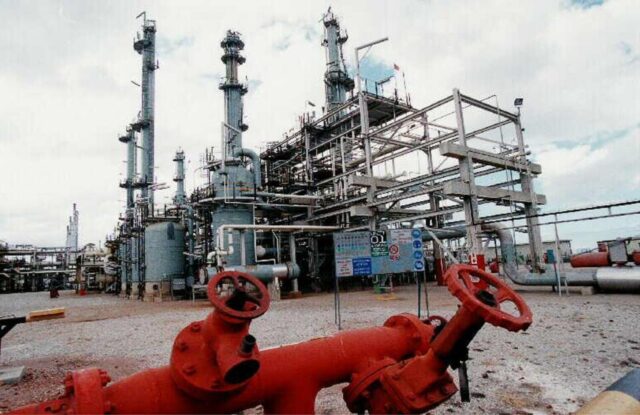PetroSA officials said they had carefully assessed the international sanctions risk of reaching an agreement with Gazprombank Africa and their assessment was that only US and European countries faced sanctions in trading with Russian oil companies.
RUSSIA’S Gazprombank Africa was selected by PetroSA as an investment partner in a project that would potentially require billions of rand to restart the mothballed gas-to-liquid refinery at Mossel Bay, PetroSA CEO Sandisiwe Ncemane said on Monday.
Gazprombank is Russia’s third-largest lender by assets and a key conduit of the Russian energy trade.
The 45,000 barrel per day Mossgas refinery was put under care and maintenance in 2020 after it ran out of gas feedstock.
PetroSA has since last year been looking for investors to restart Mossgas after the Covid-19 global supply shocks, the closure of South Africa’s two largest oil refineries, Sapref and Enref – and after energy security became a factor again for many nations due to geo-political developments arising from Russia’s war with Ukraine.
Negotiations had slowed between France based TotalEnergies and PetroSA, because of differences on pricing, on a possible gas supply agreement, that will potentially link the big TotalEnergies offshore gas discovery Luiperd- Brulpadda field to PetroSA’s FA platform – the offshore platform is linked via undersea pipeline to PetroSA’s GTL (gas to liquid) plant in Mossel Bay.
PetroSA officials said on Monday in a briefing that even if a decision was taken today to begin gas production by TotalEnergies, the Luiperd-Brulpadda field would still only come into production by 2030, by which time Mossgas’ infrastructure, which was essential for the offtake of Brulpadda’s gas, will have decayed.
With PetroSA’s balance sheet, and the government unlikely to be willing or able to fund the restart of Mossgas in the interim, the plan was to find a partner, preferably a government-to-government partner, with the technical skills and financial capability.
PetroSA officials said they had carefully assessed the international sanctions risk of reaching the agreement with Gazprombank Africa, and their assessment was that only US and European countries faced sanctions in trading with Russian oil companies.
Not only that, but there were also specific exemptions in the sanctions regulations that allowed companies to trade with Russia, with one of the exemptions being if the trade was in connection with a national energy security issue, which was the case for South Africa.
South Africa was “extremely vulnerable” at present when it came to energy security, hence the need to restart the Mossgas refinery, PetroSA officials said.
Companies from both the US and Europe were currently being allowed to trade with Russia outside sanctions, under this exemption, they said.
They said a joint feasibility study would be conducted with Gazprombank on restarting Mossgas over the next three months and a decision on whether to invest was expected to be made in the second quarter. In some cases just the cost of the feasibility study could amount to 5% of the total investment cost.
They said the other benefits of a government-to-government partner was that it enabled security of supply of equipment, the export credit financing mechanism could be used that would help reduce costs, and it lessoned the chances for allegations of corruption around the project.
Responding to questions from the media, PetroSA officials said they did not wish to name the trading partners that were supplying the diesel that was being used to fire up the peak electricity turbines for Eskom, as commercial non-disclosure agreements with the clients precluded the government from naming these clients and the product prices involved.
PetroSA said, however, they currently had stable sources of diesel supply. They said PetroSA made a R1.4 billion profit in the 2022/23 financial year after revenue rose sharply from around R12bn to R20bn, due mainly to fuel trading to supply Eskom, and that the parastatal had received an unqualified audit opinion from the auditor-general for the year.
PetroSA had also recently invited partners to participate in a potential 180 megawatt gas-to-power project on the southern coast. This plant, over time, could potentially also be supplied from gas from the Luiperd-Brulpadda offshore field, they said.
The initial plan was to re-enter the offshore Block 9 with partnership to produce gas that could be sold in the Southern part of the country, enabling PetroSA to be ready for long-term supply of Total led development of the Luiperd and Brulpadda field.
The government saw gas holding a more dominant position in South Africa’s energy mix that would support a just transition and one of the first things that needed to be addressed was the envisaged gas supply deficit highlighted by Sasol on the back of the depletion of Pande/Temane reserves. PetroSA, the CEF and the Deparment of Mineral Resources and Energy were working on a gas bilateral agreement with Mozambique to ensure supply to the industrial users in South African that supported some 76,000 jobs.
– BUSINESS REPORT








